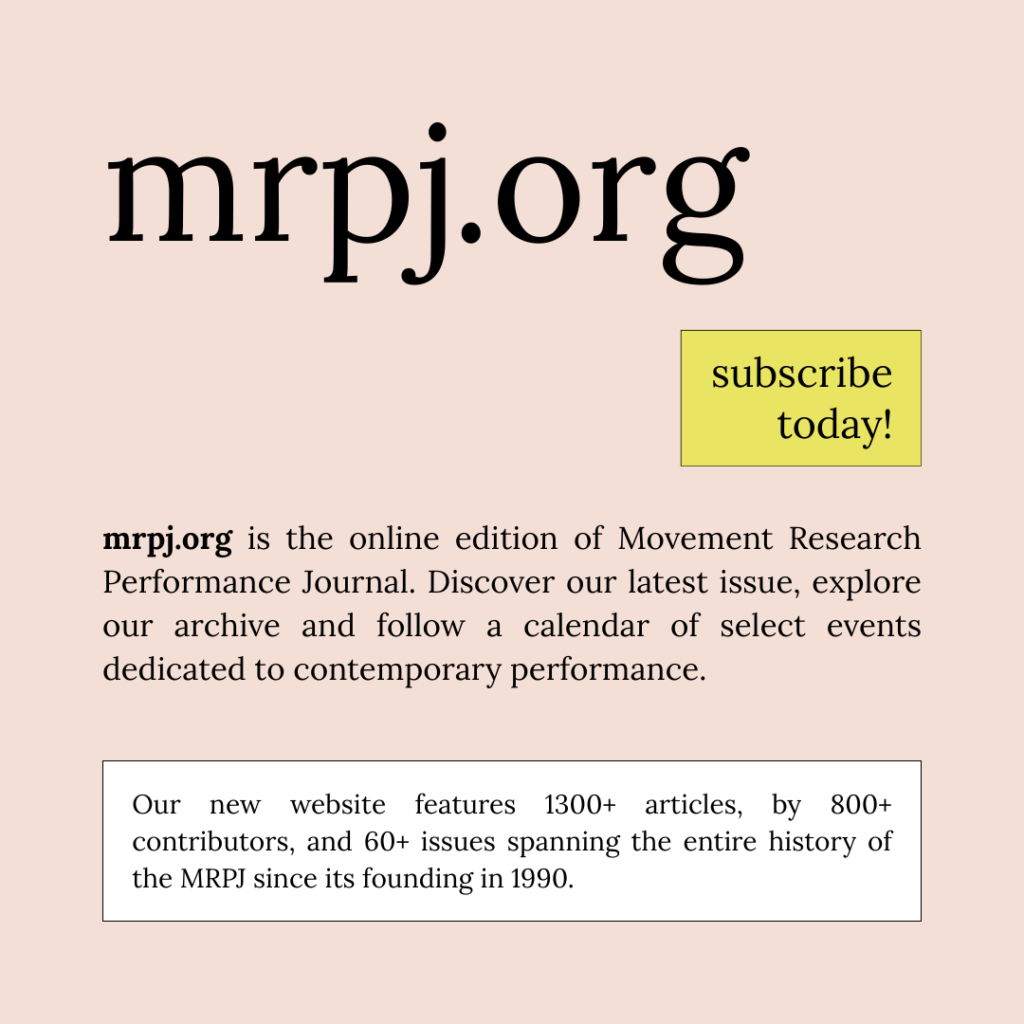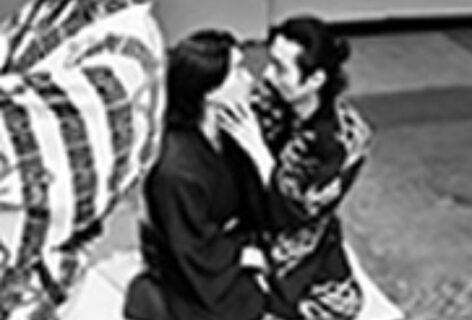by Clarinda Mac Low
Happy New Year. I have had the following thoughts rattling around in my head for a while, and I am finally bringing them out.
What do we take away from performance? I begin the investigation by example. What follows is not by any means a review, but a highly subjective internal anthropology.
In November 2007 I went to see a performance by Faustin Linyekula, a Congolese choreographer, and his company. Though he was being produced by Dance Theater Workshop, Linyekula wanted to perform in a café setting, so his performance ended up taking place at the comfortable, spacious BRIC performance space.
Imagine this: A steady stream of rhetoric (in French with projected English translation) from a steady stream of rulers, self-proclaimed and elected, of the region that, from colonization on, shifted from being named the Belgian Congo to the Republic of Congo to Zaire to the Democratic Republic of Congo, where it now perches, perhaps for a while. A thirteen-piece multi-ethnic band (Asiko) at the back of the playing space, sometimes playing live music of the African diaspora, sometimes sitting quietly.
Picture this: Three Congolese men in a variety of sport coats, slacks and leather-soled shoes parting and meeting and putting on a wide range of presences, from bully-military to child, losing clothing, losing uprightness, grappling with each other, regaining clothing, joking with the audience. An extremely self-possessed young Congolese woman, just “off-stage” who reads poems of modern Congolese life with a fine detachment and an almost supercilious disregard for us and the men onstage. A pile of loose fluorescent bulbs that is arranged rearranged, awkward, bright, cold. At the end of it all, a pile of broken baby dolls and sheaf of homemade pamphlets shouting political slogans from the ages.
I cannot describe to you what happened. I can describe to you the events of the show, but I cannot describe to you what happened. The alchemy of the piece. The sum of the parts which is more than the parts alone. The best distillation of it I can think of is the image I have retained of Linyekula squatting, folded double, wearing only a white breechclout, sitting to the side of the audience, saying in a bored, hopeless but profoundly annoyed voice, “Mobutu, shut up! Shut up, Mobutu!” [Joseph Mobutu, or Mobutu Sese Seko, was the US-supported dictator of Congo, which he renamed Zaire, from 1965-1997, and wow, he liked to talk. And proclaim. And declaim. And lie lie lie. And tell you what to do and think and what your name should be. We had at this point in the piece been listening to his overweening rhetoric for about half an hour.]
Contained in that moment was a suddenly transcendent illumination of the state of being a child of the Congo, in this day and age. I read from that moment a distilled message: a profound sense of disorientation (who are we now and why?) weariness and defeat; a highly developed sense of irony; a determination to assert an individual sense of self in the face of conflicting messages, nation names, definitions of citizenship, and place in the world. To be rather than to be defined.
That is what I mean by what we take away from performance. I was left with the determination of those artists, those people, with their subtle, sly, slippery, light and astringent piece, to be rather than to be defined. This resonates in me like a gong. I see this as what performance has to offer—the subjective experience of the historical moment. The smart and dirty and hot and funny and clear-eyed view of living now, and even a cue on how to keep on living in the absolutely hilarious and terrifyingly confusing mass of information and interconnection that makes up our lives today, wherever we are in the world.





